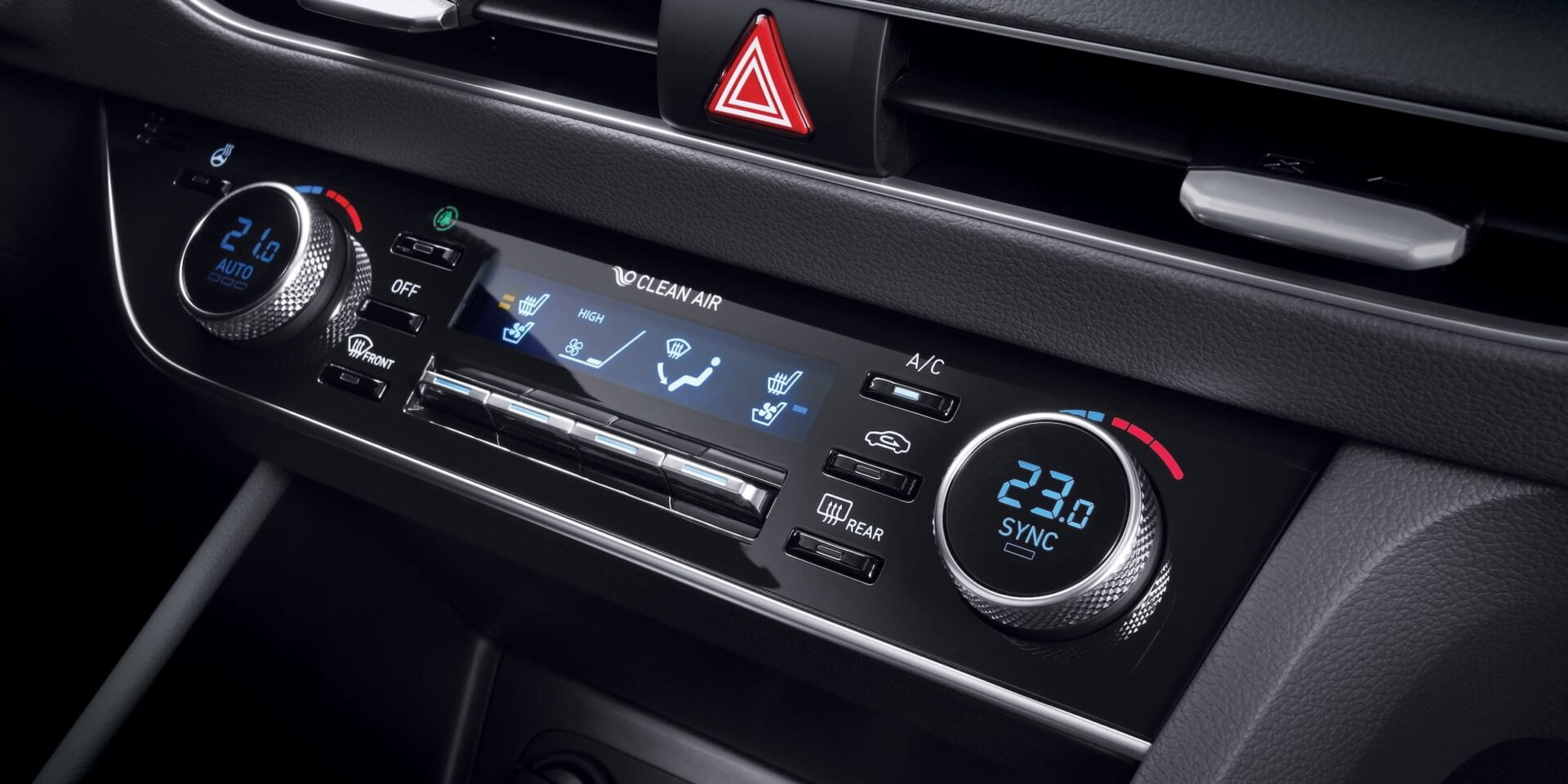It keeps your temperatures down and your comfort levels up, but your car’s air conditioning needs looking after too.
We’re having a fairly good summer in the UK this year, so you probably don’t think twice about flicking on the air conditioning in your car (or, more likely during the warmer months, leaving the switch in the ‘on’ position for weeks on end).
It was once a feature on only the most expensive cars, but today air con can be found in all but the most basic of run-arounds. It’s one of the most popular items on any modern car’s checklist and almost everyone will look for it before buying a car. It’s even a standard listing in most vans and trucks today.
The saviour on any hot day, air conditioning is not just there for cooling down – switch it on to clear a misty windscreen on a frosty morning and the glass will clear much quicker than if your a/c wasn’t being used.
But while many drivers will enjoy the feature during the summer months, and be thankful for it, few motorists really know what air con is or how it works. And when it comes to winter, and the a/c unit is switched off and forgotten, that’s when problems can arise.
Air conditioning units need to be used regularly or they can fail, leaving you with an unwanted repair bill, so let yours run for at least ten minutes every week – even in the middle of winter.

It’s a technical piece of kit – a compressor pumps refrigerant gas to a condenser, which turns it into a cold liquid. From here it passes to a drier and then to an expansion valve which allows the driver to control the temperature of the car. The liquid then turns to vapour as it passes through an evaporator and is blown into the cabin.
With the refrigerant now back in a gas form, it returns to the compressor to start all over again.
To work well, this complex system needs to be turned on regularly. It will help to keep the gas pressure up and will allow working parts to keep moving, thereby reducing the risk of something seizing or failing.
Idle air con units can also suffer from a build-up of mildew from moisture that has to been allowed to collect. This can eventually start to give off stale or unpleasant smells, and you’ll be letting less fresh air into your cabin.
It pays to keep the interior of your car clean. The air conditioning system will pick up dirt and debris and suck it in, leaving bacteria and germs lurking in the inner workings. This is another reason for those bad odours when the a/c unit is turned on for the first time in months.
Some air conditioning recharge services will include a de-bug option which will help to get rid of the smells and freshen the system up.
The refrigerant is important and needs to be charged as it will diminish and escape over time. If this happens, the unit will have to work harder to cool the air and this extra work uses more fuel as the system draws power from the engine.
The refrigerant also keeps the compressor cool while it’s at work. If there’s not enough refrigerant, the compressor could overheat and will need replacing.
Your car’s service schedule or manual will tell you when you should have your air conditioning checked and recharged and it’s well worth following this guidance.
Ignore it, and it’s you who could be left out in the cold…











